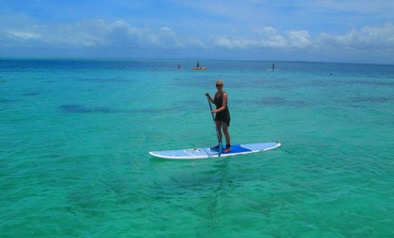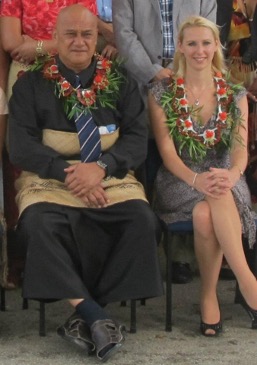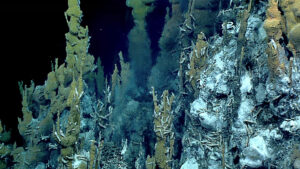Interview with lawyer Hannah Lily
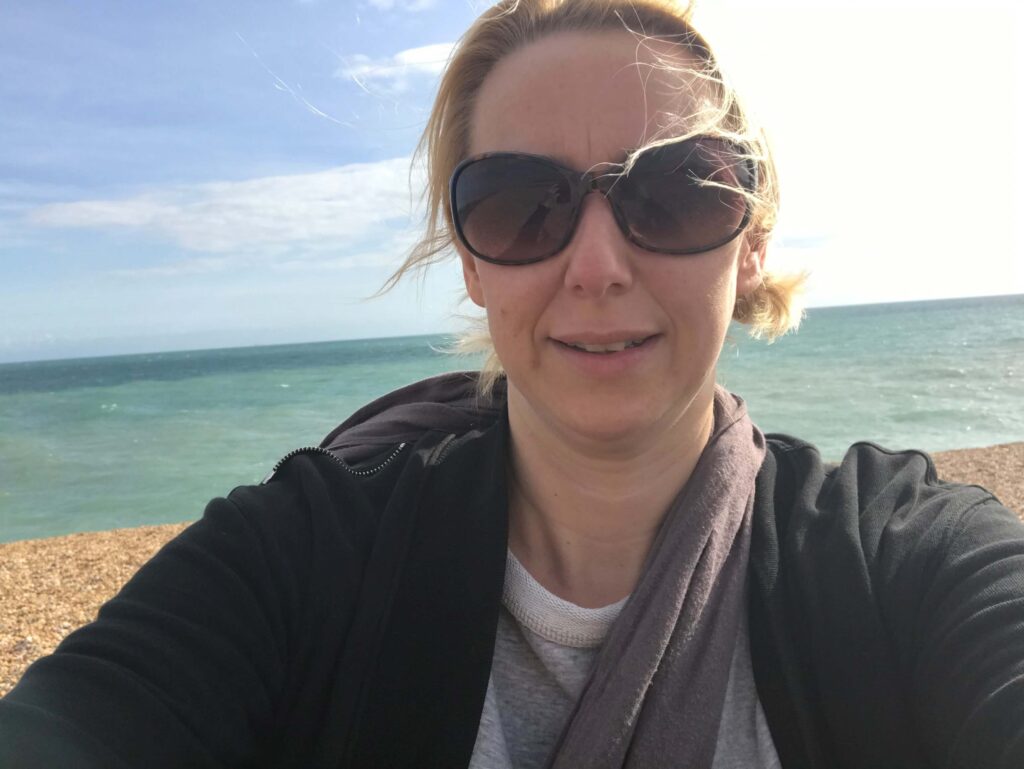
Hannah Lily on a Folkestone beach near where she lives, UK
Hannah Lily is an expert in ocean law, particularly seabed mining, with 20 years’ professional work experience for governments, NGOs and the private sector – including as a legal advisor to the Pacific Community and The Commonwealth, and as a member of the Seabed Mining Project at Pew Charitable Trust. Hannah sits on DOSI’s Advisory Board, and is also an active member of the Minerals and Climate Change working groups, where her legal insight and knowledge adds great strength to DOSI’s efforts at the science-policy interface.
Please tell us a little about your background and the knowledge you hope to bring to DOSI
I’m a lawyer. I advise governments (and others) on developing ocean policy and law, mostly around seabed mining.
I am constantly learning about the ocean from science colleagues. I find it can be quite challenging to understand and translate scientific data into policy advice. I greatly value the function DOSI plays in that regard, and would like to try to support and strengthen the role that DOSI plays in connecting policy-makers to the necessary scientific evidence-base to inform their decisions.
What inspired you to include the deep ocean/high seas in your work?
It’s a long story… but I’d say it was more fatalistic than choice! And if I’m honest the chance to live in Fiji for three years was the main incentive at the beginning… But then working day-to-day with government officials of ocean states, and my gradually increasing understanding about the complexities of deep ocean issues, definitely played a huge part in locking me into this work area. I mean, why do some kind of easy law, when you can do a type that also needs knowledge of biology, geology, chemistry, physics, engineering, politics, statistics, economics and a whole bunch of other brain-aching stuff?!
Are there stories you can share about deep-ocean stewardship and/or key issues concerning the deep waters in the country where you are from or where you work?
I have had the pleasure in my work to travel around different countries and participate in many public consultation events about ocean issues. I just stumbled across some notes in my files from a seabed mining policy workshop in Kiribati a few years ago, which made me smile. Firstly because of how enjoyable the workshop was. Although seabed mining is a pretty controversial issue, and there were diametrically opposing viewpoints in the room, I remember participants spending a surprising amount of the day collapsed in laughter. Arguments were had with such good humour. Quite different from similar events I’ve attended elsewhere, where tensions can run high! I learned a lot that day about a kind and constructive way of debating difficult topics.
I also remember that, after we’d described the workshop’s objective (to develop Kiribati’s national policy, for a seabed mining industry that was yet to start), one of the participants explained it to the rest of the group like this: ‘We are collecting the firewood, before we go out to fish. This is good.’ I really liked this analogy. We are doing the right thing to spend time, carefully gathering information and preparing the regulatory framework now, to assist us make the best decisions about our resources in the future.
Where do you see valuable opportunities for deep-ocean stewardship in the next decade?
It’s nice that the question is phrased in terms of ‘opportunity’ rather than ‘challenges’! I guess the first thing that springs to mind is the whole gamut of ongoing international processes that could lead to positive change to deep-ocean stewardship – the Decade of Ocean Science, the BBNJ process, meetings of the ISA, climate negotiations. How optimistic I feel about all that may vary from one day to another!
Another interesting trend seems to be increasing public awareness about some of the pressures facing the oceans. Perhaps social media, youth groups, consumer choices, popular media etc have just as much potential to make important changes in ocean governance as some of the more formal UN processes.
- What is your favourite deep-ocean habitat or deep-ocean organism and why?
I feel like these are really predictable answers, but for deep-ocean species, I’m finding it very hard not to say the Dumbo Octopus, which manages to be awe-inspiring and savage, while simultaneously super-cute.
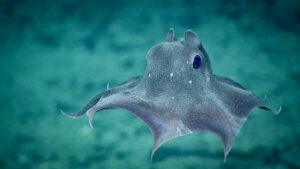
Everyone loves a dumbo octopus. Image courtesy of the NOAA Office of Ocean Exploration and Research, 2019 Southeastern U.S. Deep-sea Exploration
For habitat, it has to be active hydrothermal vents. Do I need to add a ‘because’?? Because everything about them is crazy! I love that we only just (in the 1970s) found out about all these weird ‘smoking’ chimney structures in the first place. Then the fact that – rather than being deserted because of their temperatures and toxicity – they are absolutely mobbed by animals. Thirdly the absolute strangeness of those animals and their adaptations to those extreme conditions! When I give talks about Law of the Sea, and I see people’s eyes glaze over, I find that if I can just digress into a description of tube-worms or the scaly-foot snail, the audience perks right back up again!

